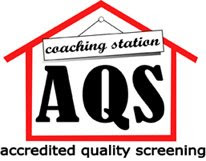An early CERAP experimental programme conducted by Terrabaca Management (in Terengganu and in Pahang between 1996 -2001) proved beyond doubt that students who have an early initiation in proper reading skills using interesting books in a non-threatening environment improved their learning capacity by leaps and bounds within a short period of time. We feel that there is a need to further develop this into a remedial cum enrichment "interventionist" method syllabus using a more structured reading skills approach which will uplift reading standards as well as improve students’ general academic achievement in schools.
The selected materials could be run as a English Coaching Games for UPSR, running from February to April. Schools will have the advantage of lifting their takeoff value from higher level, and producing students to enter secondary school with a functional and working English.
This coach-a-coach approach not only enhances general reading skills, but have an in-built scheme whereby more coaches are trained internally as the programme develops. In this way the programme feeds itself without the need for onerous funding and training programmes for teachers.
An interesting spin-off - from our experience - is that coaches themselves improve their own language skills along the way in the course of implementing the programme. We have also seen how delighted the students were with their new-found skills and also their new-found love for books that many offered to stay on as coaches beyond the designated time, creating an almost instant shift in their outlook to learning.
We have tested this peer coaching method, albeit on a small scale at primary, secondary, post-SPM and university level since 1996. We now feel that there is a need to incorporate this dynamism into the present school system so that low achievers will not fall by the wayside while their better classmates are being dragged more and more into complex IT-based learning methods, so that the number of quality students coming out of the system are increased whilst the late-bloomers catered for. The UPSR module is perfect for implementation at the the community college level (Basic PMR or SPM with low English). Such an enforced literacy programme as CERAP is able to raise literacy and the appreciation of the wrtten word, a sustainable second language leading to post-SPM advanced level.
Low achievers can be taught to excel by the simple approach of enhancing their reading skills and also by boosting their interest in learning with suitable supplementary modules. And for low achievers, we discovered, there is more pleasure for them to be coached by their peers, to be huddled whilst the head coach whisper correct pronounciation, or spelling, or assist them as their written work are being done.
These modules could also cover the core areas of science or mathematics without the need to change the tools of instruction. Here is where a creative school might want to add the science and mathematics textbooks as reading materials, to ensure each student compete, and end up reading the whole book before June. June onwards revision exercises, and the likes.
The programme that we envisage, and whose worth has been proven in our rural and suburban 'laboratories' (research done in Terengganu and in Pahang from 1996 to 2001, and amongst university students in 2002-2007) basically underline basic aim of CERAP; to enhance/boost/ supplement/ develop reading and learning skills among low achievers in English (especially among students whose academic records tend to veer downwards), via an approach to pedagogy that is simple, practical and yet effective. And more importantly to ensure that the high-achievers be put on extensive enrichment practice, for it is from their lot that the quality coaches come from.
Terrabaca Management has developed a package for the training of 20 coaches from each school, and oversee the coaching of 200+ more students by the accredited coaches. Any school interested in installing a reading mechanism in their school calender and interested in a demonstration do email us at terrabaca@hotmail.com. We also offer free consultation on CERAP, especially from schools anxious to overcome similar learning disabilities amongst their students.
manan.jpg)









1 comment:
Thanks for the info. Please put up the suggested materials for us to view.
Post a Comment